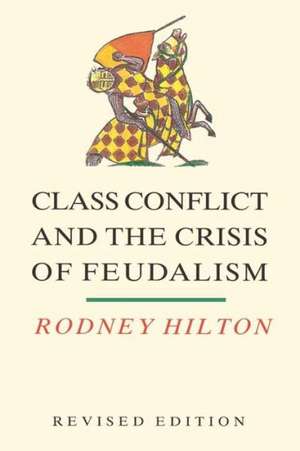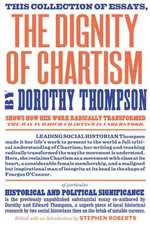Class Conflict and the Crisis of Feudalism: Essays in Medieval Social History (REV)
Autor R. H. Hiltonen Limba Engleză Paperback – 31 iul 1990
This wide-ranging collection, updated to include some of Hilton’s most recent writings, explores not only the peasant economy and peasant movements but also the nature of towns and their principal classes. Essays include a fascinating study of women traders in medieval England, and an account of medieval tax revolts—all informed by his lucid, undogmatic attention to broad theoretical issues as well as to empirical detail. This is a book not only for historians, but for anyone interested in the evolution of capitalism or the larger questions of historical process and social change.
Preț: 169.28 lei
Nou
Puncte Express: 254
Preț estimativ în valută:
32.39€ • 33.91$ • 26.96£
32.39€ • 33.91$ • 26.96£
Carte disponibilă
Livrare economică 10-24 martie
Preluare comenzi: 021 569.72.76
Specificații
ISBN-13: 9780860919988
ISBN-10: 0860919986
Pagini: 255
Dimensiuni: 154 x 233 x 21 mm
Greutate: 0.39 kg
Ediția:Rev
Editura: VERSO
ISBN-10: 0860919986
Pagini: 255
Dimensiuni: 154 x 233 x 21 mm
Greutate: 0.39 kg
Ediția:Rev
Editura: VERSO
Notă biografică
Rodney Hilton (1916–2002) was for many years Professor of Medieval Social History at Birmingham University. His books include such classics as Bond Men Made Free, English Peasantry in the Middle Ages, and a bestselling collection which he edited for Verso, The Transition from Feudalism to Capitalism.
Recenzii
“Provides both Professor Hilton’s admirers and his critics—and which of his critics is not also an admirer?—with a better opportunity than ever before to appreciate precisely how substantial and sustained his achievement has been.”—R.B. Dobson, Times Literary Supplement






